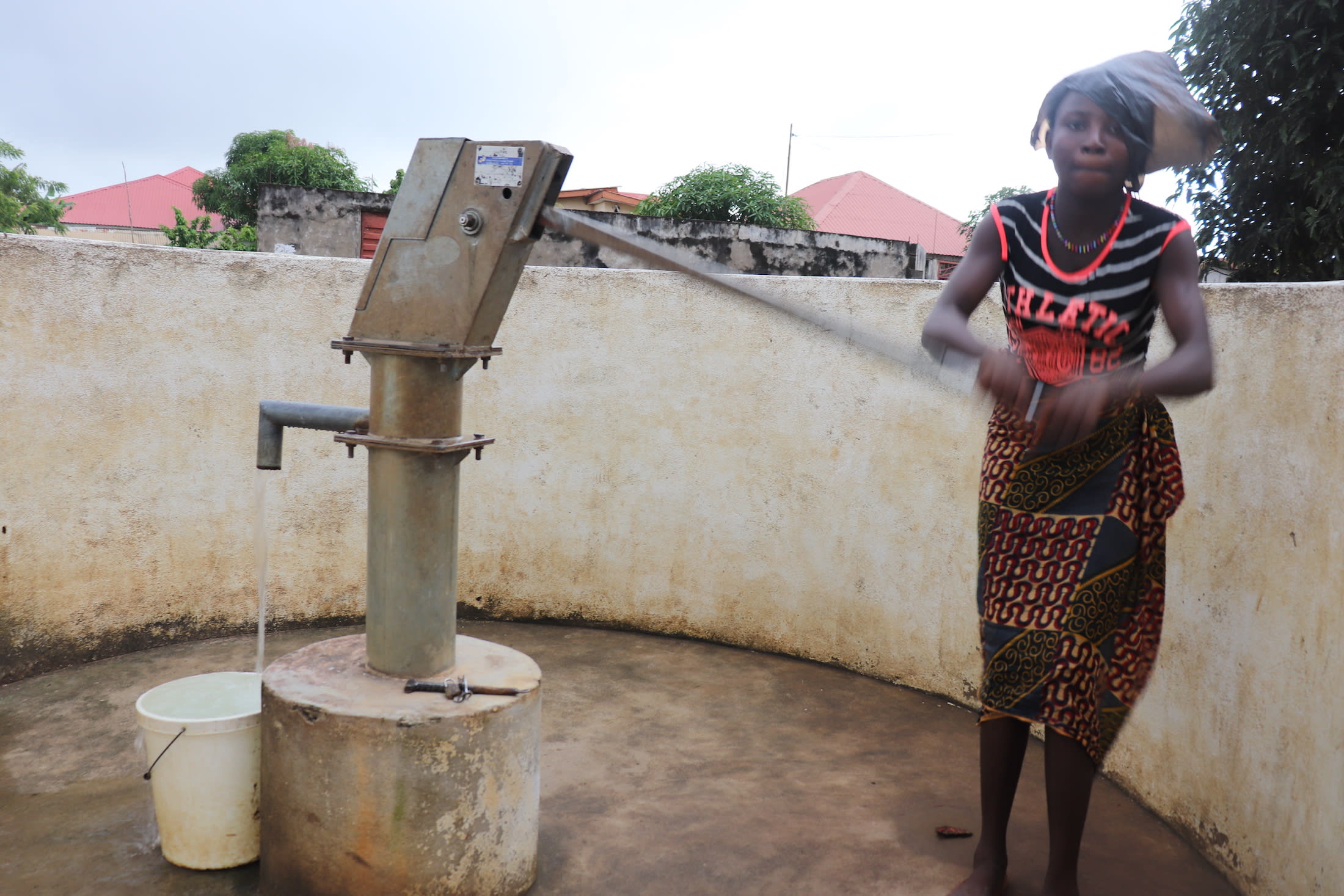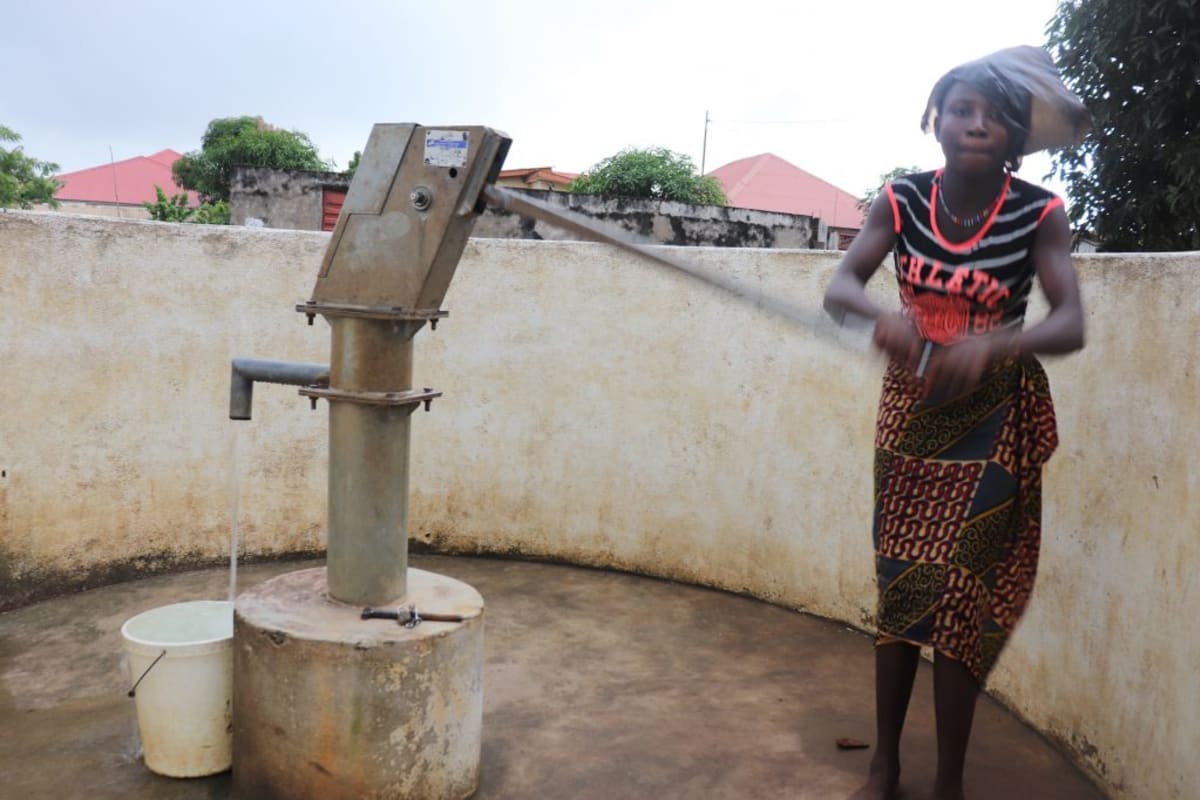This area is just down the street from our offices, so we've seen the need on a daily basis. Mahera's population is growing fast and even has a few multistory buildings. Most trees have been cut down.
Extended family lives together under one roof. Any member of a family who can afford it will always take care of one or two family members, or will even take in a neighbor or friend’s son or daughter to live with them at home.
Many people only made it through the first few grades of school and struggle to find employment now. The largest employer in this area is the airport, while the rest engage in petty trading.
The majority rises early for Muslim prayers. Children get ready for school to arrive by 8am. School is out by 2pm, but students preparing for exams stay later. Adults are out for the entirety of the day trying to make ends meet.
Water
There is a hand-dug well that has a pump on it. The one big disadvantage associated with this well is stringent control, and access is not always guaranteed. The water gets low and sometimes disappears altogether.
We approached the landowner and asked if he'd allow us to drill a borehole at the bottom of his dug well so the community could get water year round. However, he did not feel ready to sign a document allowing the community full access to this well.
We walked further down the rugged road to see the swamp that people also use. People dig holes in the swampy ground to pool enough water in which to dunk their buckets. You would not want to pay a second visit to this water source. The water in these holes looks like palm wine, and the surrounding environment is very unhygienic.
To think that a landowner would make his fellow neighbors struggle to access safe drinking water is deplorable.
"I know clean water is a source of long life. But here, you must drink any water, and that is why most of us get diarrhea and cholera. So when I don't have enough clean drinking water, I am at risk of contracting these two diseases," Farmer Abu Bakarr Kamara said.
Sanitation
Except for a few urban self-contained homes (one large building instead of several small structures), latrine facilities are in very poor condition. Most people in this community have a very different view of latrines: specifically, because it is a place to defecate, they are very careless about it. They will hardly sweep near it, the inside will be wet, and the hole left open for flies. Some do not even have "kulas," or water containers, in them.
Plastic pitchers are used for rinsing hands. Clothes are being washed and dried properly on clotheslines, but there aren't many dish racks for storing eating utensils up off the ground. There aren't many animals pens, with animals allowed to roam wherever they please - even in and out of homes! Mrs. Florence Boyah is a retired headteacher who admits things aren't as they should be.
"Most of what you are describing to me is something we know very well of, but just do not take it seriously," she said.
"There is no denying that our state of hygiene is regrettable, particularly for some neighbors. Just look around! No dish racks, dirt all over the place and even the clotheslines for most homes are not enough. Look at the condition of the toilets in most homes, you will not even want to use any of those. We are living in a death trap as far as hygiene is concerned in this community."
What we can do:
Training
There will be hygiene and sanitation training sessions offered for three days in a row.
Community members will learn how to make a handsfree handwashing station called the "tippy-tap." We will use these tippy taps for handwashing demonstrations, and will also teach about other tools like dish racks and the importance of properly penning in animals. We will highlight the need to keep latrines clean, among many other topics.
These trainings will also strengthen a water user committee that will manage and maintain this new well. They will enforce proper behavior and report to us whenever they need our help solving a serious problem, like a pump breakdown.
New Well
We will be drilling this well along Robolla Street. This project will relieve the people here of the heavy control and rationing they're encountering at the private well.
Our team will drive over the LS200 mud rotary drill rig and set up camp for a couple of nights. Once the well is drilled to a sufficient water column, it will be cased, developed, and then tested. If these tests are positive, our mechanics will install a new India Mark II pump.
This community has been pushed to the swamp for their water. By drilling this borehole, Mahera Community will be provided with plenty of accessible clean drinking water.

 Borehole Well and Hand Pump
Borehole Well and Hand Pump
 Rehabilitation Project
Rehabilitation Project




























